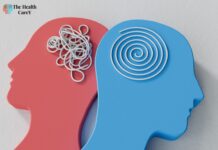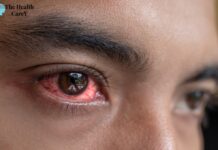When taking naltrexone, it is important to be aware of potential side effects and interactions with other drugs. Naltrexone is commonly used to treat alcohol and opioid addiction, but it can also be prescribed for other conditions. While it can be an effective medication, there are certain things to avoid when taking Low Dose Naltrexone to ensure its safety and efficacy.
One thing to avoid when taking naltrexone is consuming alcohol or opioids. Naltrexone works by blocking the effects of these substances, so taking them while on naltrexone can cause unpleasant side effects or even be dangerous. It is also important to be aware of potential interactions with other drugs, as naltrexone can affect the way other medications are metabolized in the body.
Key Takeaways
- Avoid consuming alcohol or opioids when taking naltrexone
- Be aware of potential interactions with other medications
- Talk to your doctor about any pre-existing health conditions or concerns before starting naltrexone treatment.
What to Avoid When Taking Low Dose Naltrexone
When taking low dose naltrexone (LDN), there are certain things you should avoid to ensure that the medication is effective and safe for you. Here are some things to keep in mind:
1. Avoid Opioid Medications
Naltrexone is an opioid antagonist, which means it blocks the effects of opioids in the body. If you are taking opioid medications, such as painkillers or cough syrup containing codeine, the naltrexone will block their effects and make them ineffective. Additionally, taking opioids with naltrexone can cause withdrawal symptoms, which can be uncomfortable and potentially dangerous.
2. Avoid Alcohol
Drinking alcohol while taking naltrexone can increase the risk of liver damage. Naltrexone is metabolized by the liver, and alcohol can interfere with this process, leading to liver toxicity. It is recommended that you avoid alcohol while taking naltrexone, or at least limit your alcohol intake.
3. Avoid Certain Supplements
Some supplements, such as St. John’s Wort, can interact with naltrexone and reduce its effectiveness. Additionally, some supplements can cause liver damage when taken with naltrexone. It is important to talk to your healthcare provider before taking any supplements while on naltrexone.
4. Avoid Certain Foods
Foods high in fat can slow down the absorption of naltrexone, making it less effective. It is recommended that you avoid high-fat foods for at least two hours before and after taking naltrexone. Additionally, grapefruit and grapefruit juice can increase the concentration of naltrexone in the body, which can lead to side effects. It is best to avoid grapefruit and grapefruit juice while taking naltrexone.
By avoiding these things while taking low dose naltrexone, you can ensure that the medication is effective and safe for you. Be sure to talk to your healthcare provider if you have any questions or concerns about taking naltrexone.
What to Avoid When Taking Naltrexone?
When taking naltrexone, there are certain things you should avoid to ensure the medication works effectively and to prevent any potential negative side effects. Here are some things to keep in mind:
1. Avoid Opioids
Naltrexone is an opioid antagonist, which means it blocks the effects of opioids. Therefore, you should avoid using any opioids while taking naltrexone. This includes prescription painkillers, such as oxycodone and hydrocodone, as well as illicit drugs like heroin.
2. Avoid Over-the-Counter Medications
Some over-the-counter medications, such as cough syrup and cold medicine, contain opioids or alcohol. Check the label of any medication you take to ensure it doesn’t contain any ingredients that could interact with naltrexone.
3. Avoid Certain Medical Procedures
If you need to undergo any medical procedures, such as surgery, make sure to inform your healthcare provider that you are taking naltrexone. The medication can affect how your body responds to anesthesia and pain medications.
4. Avoid Missing Doses
To ensure naltrexone is effective, it’s important to take it as prescribed. Missing doses can reduce the medication’s effectiveness and increase your risk of relapse.
By following these guidelines, you can help ensure that naltrexone works effectively and minimize any potential negative side effects.
Potential Side Effects of Naltrexone
When taking naltrexone, there are a few side effects that you should be aware of. While not everyone experiences side effects, it is important to know what to look out for in case you do.
Some potential side effects of naltrexone include:
- Nausea
- Headaches
- Dizziness
- Fatigue
- Insomnia
- Anxiety
- Irritability
- Abdominal pain
If you experience any of these side effects, it is important to speak with your doctor. They may be able to adjust your dosage or recommend ways to manage the side effects.
In rare cases, more serious side effects may occur. These can include:
- Allergic reactions
- Liver damage
- Seizures
If you experience any of these serious side effects, seek medical attention immediately.
It is important to note that naltrexone should not be taken if you are currently using opioids. Doing so can lead to severe withdrawal symptoms. Additionally, naltrexone should not be taken if you have liver disease or are pregnant.
Overall, naltrexone can be an effective medication for treating addiction, but it is important to be aware of the potential side effects and to speak with your doctor if you have any concerns.

Naltrexone Interactions with Other Drugs
Alcohol and Opioids
When taking naltrexone, it is important to avoid alcohol and opioids. Naltrexone can block the effects of these substances, which can lead to dangerous consequences. If you drink alcohol or take opioids while on naltrexone, you may experience increased sedation or respiratory depression. This can be life-threatening and should be avoided at all costs.
Over-the-Counter Medications
Naltrexone can also interact with certain over-the-counter medications. It is important to talk to your doctor before taking any new medications while on naltrexone. Some medications, such as cough and cold remedies, may contain opioids or other substances that can interact with naltrexone. Additionally, some medications may increase the risk of liver damage when taken with naltrexone.
To avoid any potential interactions, make sure to inform your doctor of all medications, supplements, and over-the-counter remedies you are taking before starting naltrexone. Your doctor can help you determine which medications are safe to take while on naltrexone and which should be avoided.
Overall, it is important to be aware of the potential interactions between naltrexone and other drugs. By taking precautions and working closely with your doctor, you can safely and effectively use naltrexone to help manage addiction.
Pre-Existing Health Conditions
If you have any pre-existing health conditions, it is important to talk to your doctor before taking naltrexone. Here are some conditions to be aware of:
Liver Disease
Naltrexone can cause liver damage in some people, especially those with pre-existing liver disease. If you have a history of liver disease or abnormal liver function tests, your doctor may recommend regular monitoring of your liver function while taking naltrexone.
Kidney Disease
Naltrexone is primarily metabolized in the liver and excreted by the kidneys. If you have kidney disease, your body may not be able to eliminate naltrexone as effectively, which could increase the risk of side effects. Your doctor may adjust your dose or recommend regular monitoring of your kidney function while taking naltrexone.
It is important to be honest with your doctor about any pre-existing health conditions you have before starting naltrexone. Your doctor can help you determine if naltrexone is safe and appropriate for you.
Naltrexone While Pregnancy and Breastfeeding
If you are pregnant or breastfeeding, you should avoid taking naltrexone. The drug can pass through the placenta and into breast milk, which can potentially harm the fetus or nursing infant.
There have been limited studies on the effects of naltrexone during pregnancy, but animal studies have shown that it can cause fetal harm. Additionally, naltrexone has not been approved by the FDA for use during pregnancy.
If you become pregnant while taking naltrexone, you should talk to your doctor immediately. They may recommend that you stop taking the medication or switch to an alternative treatment.
Similarly, if you are breastfeeding, you should not take naltrexone. The drug can be passed through breast milk and potentially harm the nursing infant. It is important to talk to your doctor about alternative treatments if you are breastfeeding.
In summary, if you are pregnant or breastfeeding, you should avoid taking naltrexone. The drug can potentially harm the fetus or nursing infant and has not been approved by the FDA for use during pregnancy. Talk to your doctor about alternative treatments if you are pregnant or breastfeeding.
Discontinuation of Naltrexone
If you decide to stop taking naltrexone, it is important to do so under the supervision of a healthcare professional. Suddenly stopping the medication can cause withdrawal symptoms that may be uncomfortable or even dangerous.
It is recommended that you gradually reduce your dose of naltrexone over a period of several days or weeks. Your healthcare provider can help you create a plan for tapering off the medication.
If you experience any unusual symptoms during the discontinuation process, such as nausea, vomiting, diarrhea, or anxiety, be sure to inform your healthcare provider immediately. They may need to adjust your tapering schedule or provide additional support to help manage your symptoms.
Remember, naltrexone is just one part of a comprehensive treatment plan for addiction. If you are considering discontinuing the medication, be sure to discuss your options with your healthcare provider and continue to engage in other forms of treatment, such as therapy or support groups.
Summary
When taking naltrexone, there are several things to keep in mind to ensure your safety and maximize the effectiveness of the medication. Here are some key points to remember:
- Avoid drinking alcohol while taking naltrexone. The medication blocks the effects of alcohol and can cause unpleasant side effects if you try to drink while on it.
- Be aware of potential drug interactions. Naltrexone can interact with certain medications, including opioid painkillers and cough medicines. Make sure your doctor is aware of all medications you are taking before starting naltrexone.
- Follow your doctor’s instructions carefully. Naltrexone is typically taken once a day, either with or without food. Make sure you understand how to take the medication and follow your doctor’s dosing instructions.
- Be prepared for potential side effects. Naltrexone can cause side effects such as nausea, headache, and dizziness. These side effects are usually mild and go away on their own, but if they persist or become severe, talk to your doctor.
- Don’t stop taking naltrexone without talking to your doctor. Suddenly stopping the medication can cause withdrawal symptoms and make it more difficult to stay sober.
By following these guidelines and working closely with your doctor, you can safely and effectively use naltrexone to help you overcome addiction and achieve lasting recovery.
Frequently Asked Questions
Are there any medications that should not be taken with naltrexone?
Yes, there are some medications that should not be taken with naltrexone. These include opioids, as naltrexone can block the effects of opioids and may cause withdrawal symptoms. You should also avoid taking medications that can harm the liver, such as acetaminophen, while taking naltrexone.
What are the potential side effects of naltrexone?
Some potential side effects of naltrexone include nausea, headache, dizziness, fatigue, and insomnia. These side effects are usually mild and go away on their own. If you experience any severe side effects, such as difficulty breathing or chest pain, seek medical attention immediately.
Can naltrexone be taken with food or drink?
Yes, naltrexone can be taken with or without food. However, it is important to avoid drinking alcohol while taking naltrexone, as this can increase the risk of liver damage.
How long should naltrexone be taken?
The length of time that naltrexone should be taken depends on the individual and their specific needs. Your healthcare provider will determine the appropriate length of treatment for you.
Can naltrexone be taken during pregnancy or while breastfeeding?
Naltrexone should not be taken during pregnancy or while breastfeeding, as it can harm the developing fetus or nursing infant. If you become pregnant while taking naltrexone, contact your healthcare provider immediately.
What should be done if a dose of naltrexone is missed?
If you miss a dose of naltrexone, take it as soon as you remember. However, if it is almost time for your next dose, skip the missed dose and continue with your regular dosing schedule. Do not take a double dose to make up for a missed one.
Also Read:
What Foods to Avoid When Taking Furosemide
What Foods to Avoid with High Alkaline Phosphatase
How Much Does a Chiropractor Cost Without Insurance






















